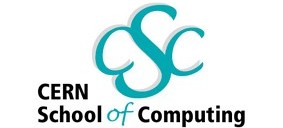|
iCSC 20010
Lecturer Biographies
At the
time of the school
|
|
|
David HORAT |
CERN, Geneva - Switzerland |
|
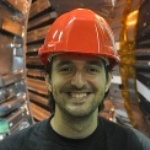 |
I was raised in Gran Canaria, a Spanish island near the African coast.
There, I studied a M.Sc. in Computer Engineering at the ULPGC. Encouraged by
my colleagues and friends, I decided to go abroad. I spent 6 months with an
Erasmus scholarship in the German University FH NordAkademie, where I
developed an eLearning platform based on Moodle and other tools. I later
worked on my Master Thesis which focused on accessibility and usability on
web applications. I graduated with distinction.
I am currently working as a Software
Engineer in the European Organization for Nuclear Research -CERN-
specialized in grid and web technologies. I have also worked at Ericsson in
its R&D labs as a specialist on communication protocols. Among other things,
I have participated as a Moodle mentor in the Google Summer of Code program.
|
|
|
|
|
Tim MUENCHEN |
Bergische Universität Wuppertal - Germany |
|
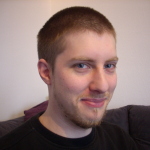 |
I studied computer science at the University of Applied Sciences, Münster,
and got my master's degree in 2007. In 2008, I started to work on my PhD
thesis at the ATLAS working group of the University of Wuppertal. I am
continuing development on the user space job monitoring software, JEM,
created at Wuppertal, and focus on the user interface (integration in the
job submission and management tool 'ganga') and a binary tracing module
allowing to monitor.(athena-) user algorithms written in C++.
|
|
|
|
|
Luis Fernando MUNOZ MEJĺAS |
CERN, Geneva - Switzerland |
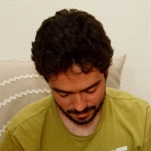
|
I am working on a central log service for the Computer Security Team, which
should allow for easier identification of ongoing attacks and faster
forensics analysis of . For this project I have already developed some
modules for rsyslog (in C language), as well as some database designs and
queries and scripts to use them (SQL, PL/SQL, Python, C, Perl). This task
involves also some understanding on SELinux policies, how to write them and
how to enforce minimum privileges. I'm also a skilled C++ programmer,
although probably not as efficient as I am in Perl, Python, C and bash
scripting which are my "working languages". Occasionally I maintain parts of
Quattor for which I'm an author. I'm mostly familiar with Linux at systems
administrator, user and low-level application levels, although have some
knowledge of Windows.
|
|
|
|
|
Malte NUHN |
RWTH, Aachen
University
- Germany |
|
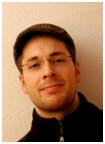
|
Malte Nuhn is studying physics and computer science at RWTH Aachen
University. He is about to finish his physics Diploma in the field of
Grid Computing and planning to graduate in computer science, soon. In his
spare time, Malte likes hacking around Linux and free software projects.
|
|
|
|
|
Benjamin RADBURN SMITH |
STFC Rutherford Appleton Laboratory, Didcot – U.K. |
|
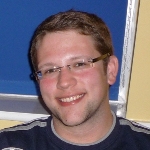
|
I am a first year PhD student with the University of Manchester studying
data mining and visualisation of particle physics datasets. I am currently
based at the Rutherford Appleton Laboratory (RAL) in the UK working between
the CMS group and e-Science Scientific Applications Group. The visualisation
techniques I am investigating include parallel coordinates and the grand
tour. The aim of the project is to create a program which is compatible with
ROOT that will implement these techniques. The program is being written in
C++ for Linux based systems but will be developed to run on other systems as
well.
|
|
|
|
|
David SVANTESSON |
CERN, Geneva - Switzerland |
|
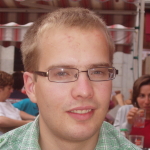 |
I am currently a technical student at the Online group of LHCb at CERN. My
main tasks are development and improvements of the control system and error
tracking for the data acquisition system. My work will be part of my M.Sc.
thesis in physics from Chalmers University (Sweden). In my work I mostly use
C, C++ and the SCADA system PVSS. I am also familiar with other computer
languages as Java, PHP, Javascript, MySQL, Matlab, LaTeX, bash scripts. I
use actively and configure different Linux/UNIX systems and occasionally
Windows.
|
|
|
|
|
Uwe WESTERHOFF |
Institut für Kernphysik, Münster – Germany |
|
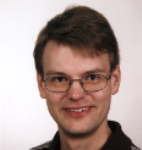 |
I am working as a PhD student at the "Institut für Kernphysik" in Münster
for the ALICE experiment. In my diploma thesis I have developed the online
control software for the Transition Radiation Detector of ALICE. Currently I
am involved in the development of online particle identification methods for
the Transition Radiation Detector to identify electrons with high transverse
momenta in pp and heavy ion collisions within a few micro seconds.
Furthermore I am the system administrator of our computer network and
involved in the maintenance of a 100 CPU cluster, which is part of the ALICE
computing grid.
|
|
|
